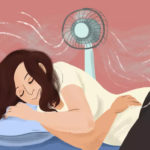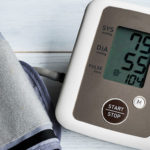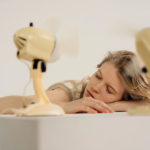A breath of air from a fan can help you feel cool and refreshed for a good night’s sleep. However, it is absolutely not recommended to point the fan directly at yourself when sleeping at night.
The harm of pointing the fan directly at yourself at night
According to BS Mark Reddick from Agnco Hospital in the US, “For some people, having a fan in the room helps them sleep better and stay cool throughout the night, but for others, it can make them more alert, trigger asthma attacks, or dry out their eyes.”
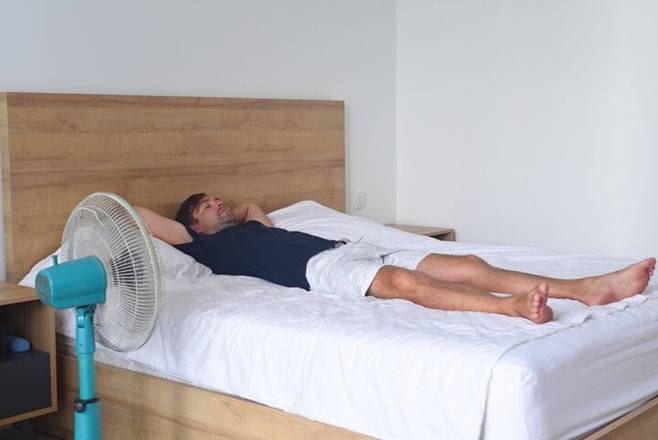
The harm of pointing the fan directly at yourself at night can be more severe than you think. (Image: Sleep Foundation)
Pointing the fan directly at yourself while sleeping can provide immediate relief from heat, but it can also cause several health problems, including:
Aggravating allergies
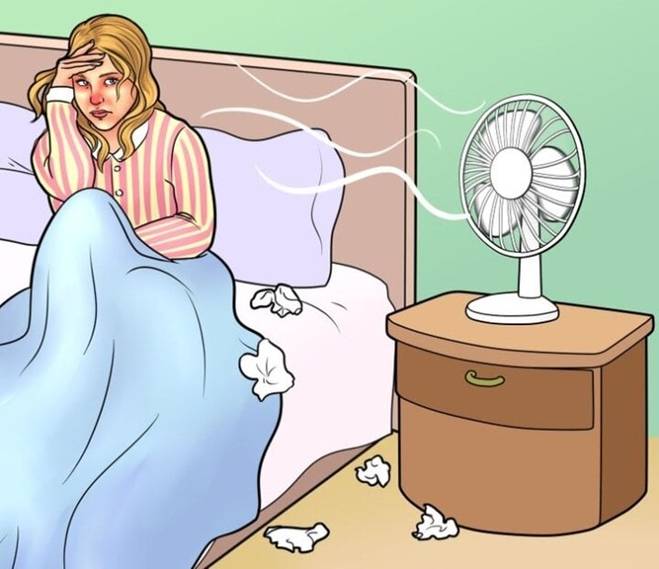
One of the harm of pointing the fan directly at yourself at night is worsening allergies. (Image: Brightside)
If you are prone to allergies, it is best to limit the use of a fan while sleeping, especially avoiding pointing the fan directly at yourself. BS Mark Reddick says, “When a fan circulates the air in the room, it creates dust and pollen streams, which can enter your sinuses. If you are prone to allergies, asthma, and dry eyes, it can worsen your condition.
Furthermore, for those who do not fully close their eyes while sleeping, the fan can dry out your eyes and potentially cause serious irritation. And if you wear contact lenses while sleeping, it becomes even more problematic.”
BS Mark also recommends regularly cleaning the fan, as dust on the fan blades will be blown into the air every time you turn on the fan.
Dry skin, dry mouth, and nose
Using a fan can cause sweat to evaporate and remove moisture from your body quickly. This leads to dehydration, resulting in dry skin, dry mouth, and dry nose. Mark Reddick explains, “People are at risk of dry skin when using a fan. Constant airflow can cause dry skin. Moisturizers and hydrating creams help prevent this; but if your skin is already very dry, be cautious and monitor to ensure the fan does not dry out your skin excessively.”
If you frequently use a fan, try to drink enough water to compensate for the lost moisture.
Muscle cramps
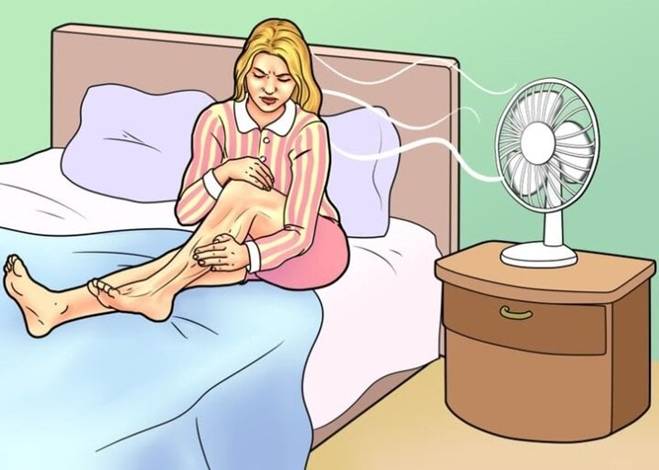
Continuous direct blowing from a fan can make you feel cold and cause muscle cramps. (Image: Brightside)
During the night, the temperature tends to decrease quickly, and if the fan blows directly at you continuously, you may feel cold. Constant exposure to the cold is one of the causes of muscle cramps.
On the other hand, on extremely hot nights, the fan can blow hot air at you and raise your body temperature, leading to heat-related conditions, affecting your organs, disrupting sweat secretion, fatigue, discomfort, headaches, dizziness, and even nausea.
Safe cooling methods
To avoid the harm of pointing the fan directly at yourself at night, you can try the following cooling measures.
Open the windows
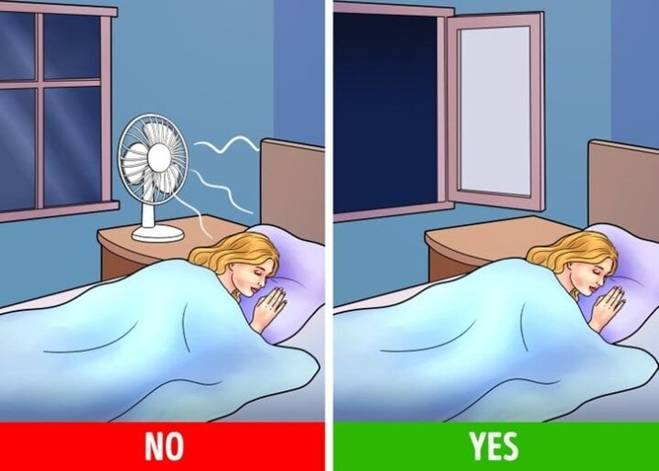
You should open the windows while sleeping instead of pointing the fan directly at yourself. (Image: Brightside)
A simple solution for hot nights is to partially open the windows while sleeping. A cool breeze in the middle of the night or near dawn will help make the air in the room cooler. If you are concerned about mosquito bites, you can install a mosquito net or screen on the windows.
Place a wet towel or water container under the bed
To cool down and prevent dehydration, you can place a damp towel next to your bed or put a water container near your sleeping area. This method significantly increases the humidity in the bedroom.
Adjust the fan direction
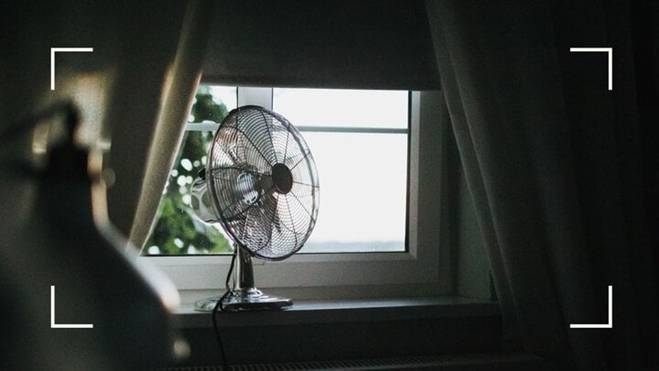
Placing the fan near the window is also a way to ensure continuous air circulation in the room. (Image: Woman and Home Magazine)
If you still want to use a fan while sleeping, try adjusting its direction. By doing so, the airflow will not directly blow on you.
You can also place the fan near the window, as the fan blades will draw in outside air and circulate it into the room, ensuring continuous airflow.
In addition, you can also use a ceiling fan instead of a floor fan, as a ceiling fan distributes the airflow more widely and provides better room cooling.
According to VTC news
Tips for Keeping Cool on a Hot Summer Day
As extreme weather patterns become increasingly common, many are struggling to find ways to cope. With temperatures in our country rising and cooling far beyond what used to be considered normal for the season, winter often feels like spring and summer can be oppressive and sweltering. How can we prepare for and manage the drastic shifts in climate?

























